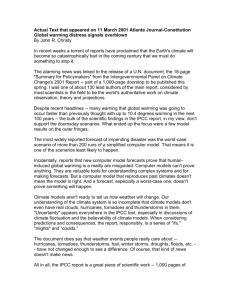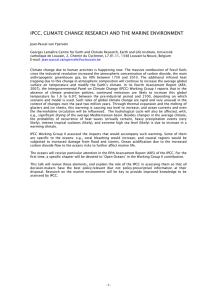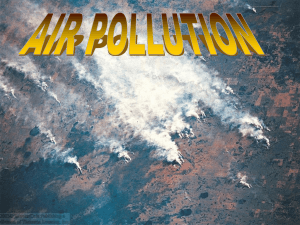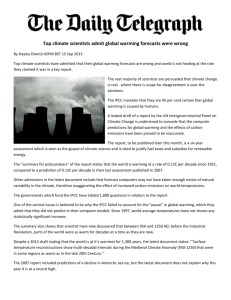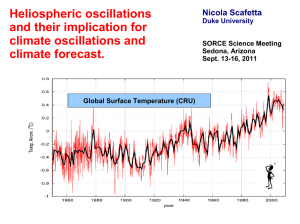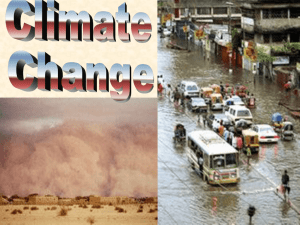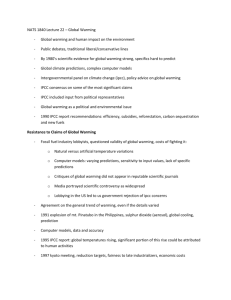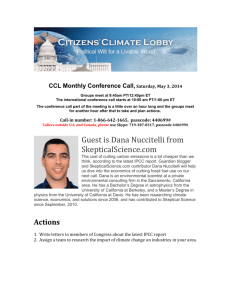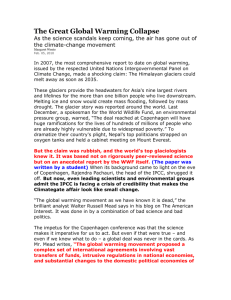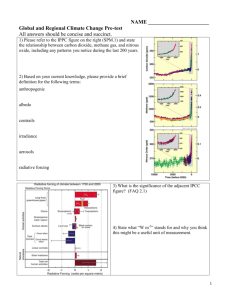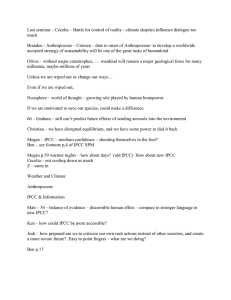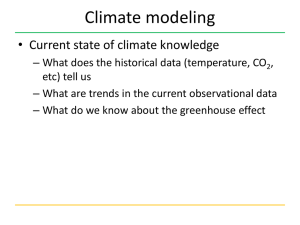Here - Kim Nicholas
advertisement
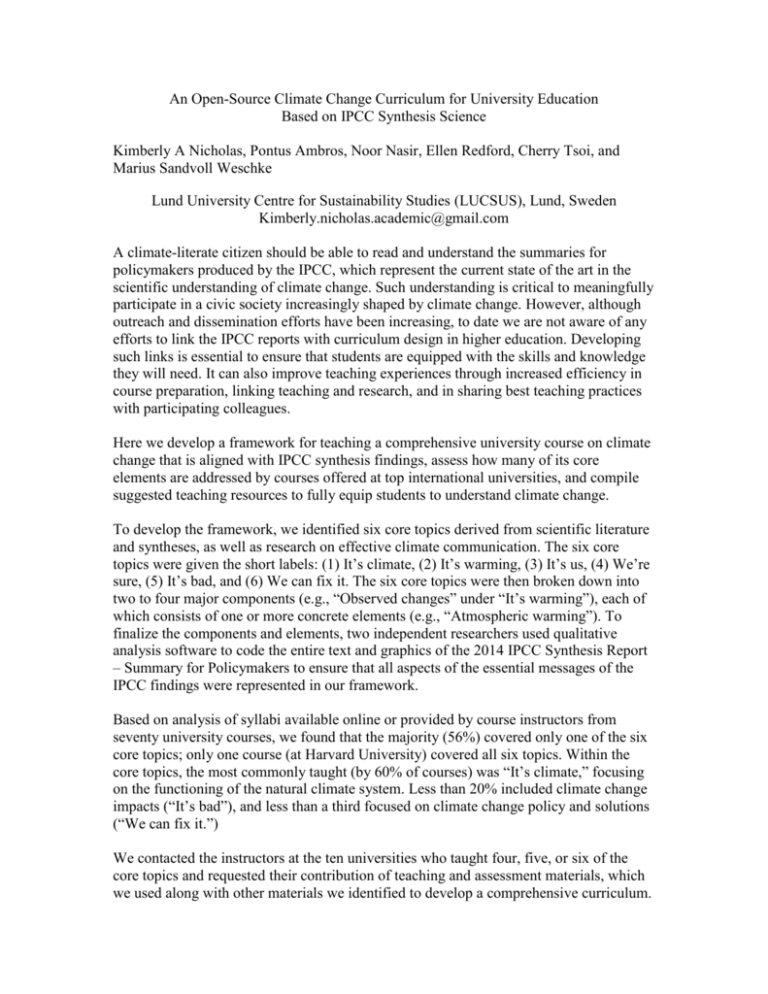
An Open-Source Climate Change Curriculum for University Education Based on IPCC Synthesis Science Kimberly A Nicholas, Pontus Ambros, Noor Nasir, Ellen Redford, Cherry Tsoi, and Marius Sandvoll Weschke Lund University Centre for Sustainability Studies (LUCSUS), Lund, Sweden Kimberly.nicholas.academic@gmail.com A climate-literate citizen should be able to read and understand the summaries for policymakers produced by the IPCC, which represent the current state of the art in the scientific understanding of climate change. Such understanding is critical to meaningfully participate in a civic society increasingly shaped by climate change. However, although outreach and dissemination efforts have been increasing, to date we are not aware of any efforts to link the IPCC reports with curriculum design in higher education. Developing such links is essential to ensure that students are equipped with the skills and knowledge they will need. It can also improve teaching experiences through increased efficiency in course preparation, linking teaching and research, and in sharing best teaching practices with participating colleagues. Here we develop a framework for teaching a comprehensive university course on climate change that is aligned with IPCC synthesis findings, assess how many of its core elements are addressed by courses offered at top international universities, and compile suggested teaching resources to fully equip students to understand climate change. To develop the framework, we identified six core topics derived from scientific literature and syntheses, as well as research on effective climate communication. The six core topics were given the short labels: (1) It’s climate, (2) It’s warming, (3) It’s us, (4) We’re sure, (5) It’s bad, and (6) We can fix it. The six core topics were then broken down into two to four major components (e.g., “Observed changes” under “It’s warming”), each of which consists of one or more concrete elements (e.g., “Atmospheric warming”). To finalize the components and elements, two independent researchers used qualitative analysis software to code the entire text and graphics of the 2014 IPCC Synthesis Report – Summary for Policymakers to ensure that all aspects of the essential messages of the IPCC findings were represented in our framework. Based on analysis of syllabi available online or provided by course instructors from seventy university courses, we found that the majority (56%) covered only one of the six core topics; only one course (at Harvard University) covered all six topics. Within the core topics, the most commonly taught (by 60% of courses) was “It’s climate,” focusing on the functioning of the natural climate system. Less than 20% included climate change impacts (“It’s bad”), and less than a third focused on climate change policy and solutions (“We can fix it.”) We contacted the instructors at the ten universities who taught four, five, or six of the core topics and requested their contribution of teaching and assessment materials, which we used along with other materials we identified to develop a comprehensive curriculum. The curriculum is based on the principles of constructive alignment, and includes a course syllabus, readings, lectures, labs, problem sets, and suggested learning and assessment activities. The curriculum will be freely available online as a teaching resource. We have shown that there is a need for a comprehensive, research-based climate change course in higher education, which at present is largely unmet. Such courses are essential to promote deep student learning using thoughtfully designed teaching and assessment activities to promote intended learning outcomes, as well as the real-world illustration of the method of scientific inquiry applied to socially relevant problems. Ultimately, using scientific syntheses as the basis for university curricula would help close the gap between research and classroom learning, promote increased scientific understanding, and help ensure that the resources devoted to scientific synthesis efforts are translated to broader benefits for society.
